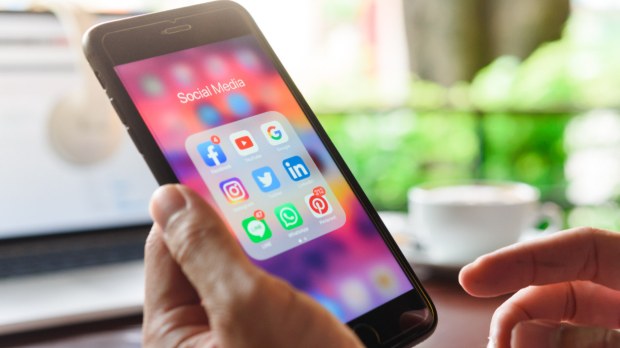One of the many consequences of COVID-19 was an uptake in depression. It’s not overly surprising considering the huge changes in our everyday lives, and the impact on family life. So a team of scientists from Harvard wanted to discover what exactly was the cause for our changed mental state, and whether social media had a part to play.
In a survey carried out on around 5,400 adults, with the average age being 56, scientists studied the effect of popular platforms such as TikTok and Instagram on the participants. And apparently they’re not as entertaining as they should be.
The findings released in the medical journal JAMA Network Open last week showed that middle-aged social media users reported feeling sad when using these forms of social media.
In the surveys carried out over a one-year period between May 2020 and May 2021, doctors questioned individuals on their social media use and their levels of happiness, factoring in the effect of social isolation in their research.
“People who were using Facebook, people who were using TikTok, and people who were using Snapchat were substantially more likely to come back and tell us they felt depressed the next time they filled out the survey,” according to Dr. Roy Perlis, a professor of psychiatry at Harvard Medical School and Massachusetts General Hospital.
The findings don’t categorically state that spending time on social media causes depression in itself. As NBC states in their report, it’s difficult to determine if individuals using social media have a higher propensity to suffer from depression than those who don’t use social media.
On top of that, the impact of the content that participants was exposed to wasn’t analyzed. After all, if you spent your time reading the news during the worst of the pandemic, you would understandably feel a little flat.
However, there were specific elements that researchers felt could play a part in bringing people down. Seeing others parade their supposedly perfect lives before all to see plays on people’s insecurities and makes them feel they are missing out.
The research also examined specific platforms and their effects on people of different ages. People over 35 felt more depressed when using TikTok and Snapchat, whereas those under 35 using Facebook felt more depressed than their peers using other platforms.
While the reasons for these differences weren’t specified, the researchers felt the younger participants may be more positively stimulated by the visuals in TikTok and Snapchat.
Interestingly, Mitch Prinstein, chief science officer for the American Psychological Association, called into question the quality of our interactions:
Our brains were not built for this kind of social interaction. And social media is kind of hijacking the need for social interaction with something very artificial and insufficient. Social media is the empty calories of social interaction.”
The findings won’t come as a surprise to many. Spending hours scrolling through threads on social media can be very depressing, especially when you see people openly being unkind or hateful. And strangely, before you know it, you’ve spent too much time focusing on other people’s lives.
“The programs are designed to keep you on as long as possible,” as Prinstein explains, so it’s important they’re used in moderation and with a more mindful approach.
We should also bear in mind that, as parents, we need to be careful of the example we give our children. Previous data found the detrimental effect of social media on the mental health of today’s teens, tragically leading to an increase in suicide attempts, and in some cases, suicide.
However, when used sensibly, social media can be a great way to stay connected to loved ones, and a source of useful information if you carefully choose the right people and accounts to follow. Of course, we thoroughly recommend Aleteia on every platform!


